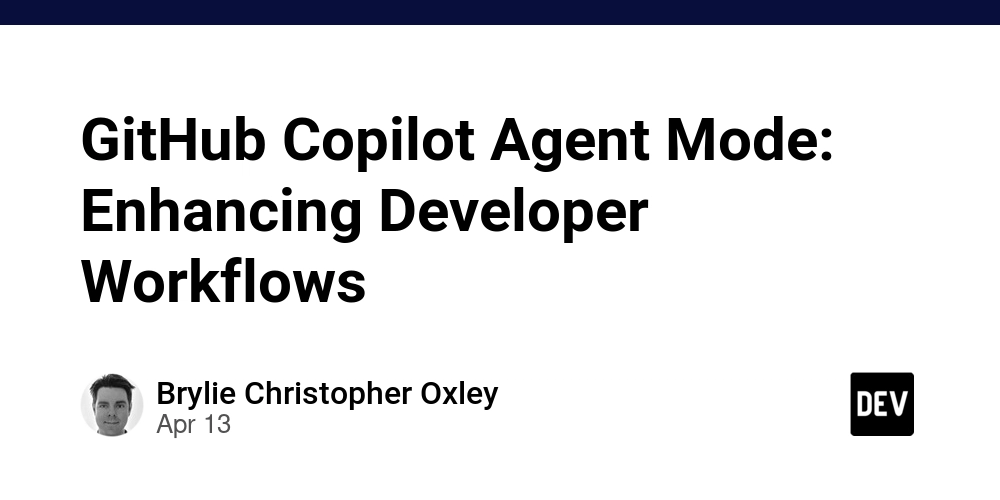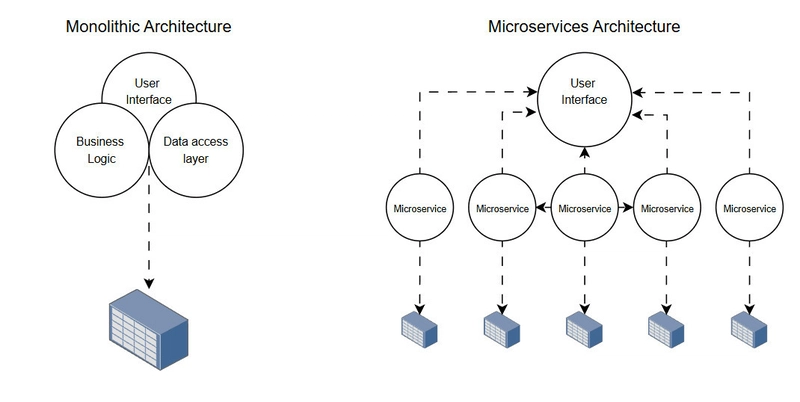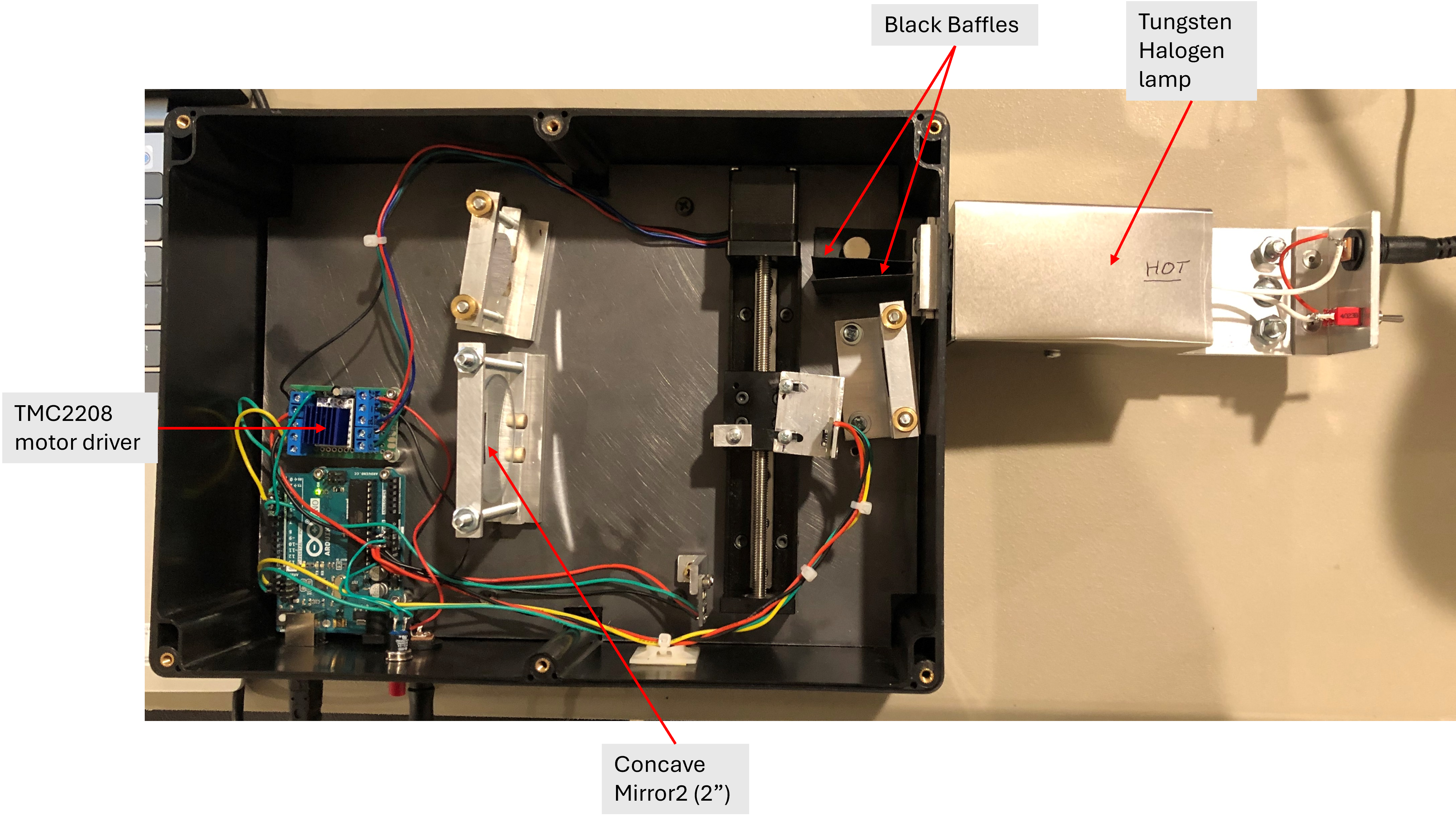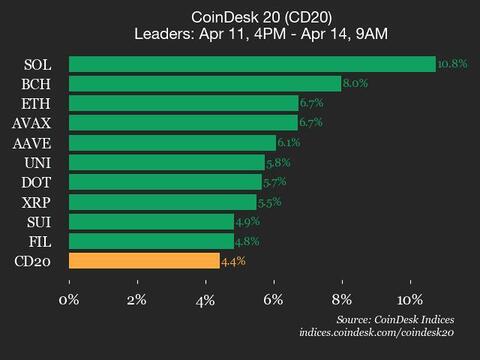GitHub Copilot Agent Mode: Enhancing Developer Workflows
GitHub Copilot has transformed how developers write code, offering suggestions and completing code blocks to speed up development. Now, with the introduction of Agent mode, GitHub has taken AI-assisted development to a new level. This post explores how Copilot Agent mode can enhance your development workflow and help you become more productive. What is GitHub Copilot Agent Mode? Agent mode represents a significant evolution in how GitHub Copilot interacts with developers. Unlike the standard Copilot experience, which primarily focuses on line-by-line code suggestions, Agent mode offers a more conversational and context-aware approach to AI assistance. The key distinction lies in Agent mode's ability to: Understand complex, multi-step requests Maintain context throughout a development session Execute sequences of operations to solve problems Reason about code structure and architectural decisions Provide explanations and educational insights alongside code This shift from reactive suggestions to proactive assistance makes Agent mode feel more like working with a knowledgeable pair programmer than a prediction tool. Setting Up GitHub Copilot Agent Before you can leverage Agent mode in your workflow, you'll need to ensure proper setup: Prerequisites An active GitHub Copilot subscription Visual Studio Code with the GitHub Copilot extension installed The latest extension updates are applied Configuration Process Open VS Code and ensure your GitHub Copilot extension is updated Access the Copilot menu through the status bar icon Enable Agent mode from the settings menu Restart VS Code to apply changes Verification Try asking a complex question in a comment to verify Agent mode is working correctly. For example: Can you help me implement a function that reads a CSV file, filters rows based on a condition, and writes the results to a new file? If Agent mode is configured correctly, you'll see a more comprehensive response that addresses the multi-step nature of your request rather than just code completion. Practical Applications in Development Workflows Agent mode shines in several key areas of the development process, offering convenience and efficiency in tasks such as code refactoring, debugging assistance, documentation generation, and architecture planning. Code Refactoring Agent mode excels at understanding the structure and purpose of existing code, making it an invaluable tool for refactoring: # Before refactoring def process_data(data): result = [] for item in data: if item['status'] == 'active' and item['value'] > 100: result.append(item['id']) return result With Agent mode, you can ask: Refactor this function to use list comprehension and add proper error handling Agent mode will understand both the code's function and your refactoring goals, providing a comprehensive solution. Debugging Assistance When facing challenging bugs, Agent mode can help analyze the problem and suggest solutions: # This function sometimes returns None unexpectedly. Can you identify potential issues? def get_user_data(user_id): response = api.request('users', user_id) if response.status == 200: return response.data if response.status == 404: log_error('User not found') Agent mode will indicate that the function does not have a return statement in the 404 case, which explains why it returns None in that scenario. Documentation Generation Creating comprehensive documentation is often tedious but essential. Agent mode can generate detailed documentation based on existing code: Generate JSDoc comments for this function function processPayment(userId, amount, currency, method) { // Implementation details... } Agent mode will create appropriate documentation that explains parameters, return values, and potential exceptions. Architecture Planning Perhaps most impressively, Agent mode can assist with higher-level architecture decisions: I need to design a system for processing large CSV files, extracting specific data, and storing results in a database. What components should I consider, and how might they interact? Agent mode can provide architectural guidance, suggesting component structures, potential libraries, and design patterns suited to your needs. Advanced Techniques To get the most from Agent mode, consider these advanced techniques: Customizing Prompts The effectiveness of Agent mode largely depends on how you communicate your needs. Well-structured prompts yield better results: Basic prompt: How do I parse JSON? Improved prompt: I need to parse a JSON API response that might contain nested arrays of user objects. Each user has an 'id', 'name', and 'permissions' field. Show me how to extract all users with 'admin' in their permissions array

GitHub Copilot has transformed how developers write code, offering suggestions and completing code blocks to speed up development. Now, with the introduction of Agent mode, GitHub has taken AI-assisted development to a new level. This post explores how Copilot Agent mode can enhance your development workflow and help you become more productive.
What is GitHub Copilot Agent Mode?
Agent mode represents a significant evolution in how GitHub Copilot interacts with developers. Unlike the standard Copilot experience, which primarily focuses on line-by-line code suggestions, Agent mode offers a more conversational and context-aware approach to AI assistance.
The key distinction lies in Agent mode's ability to:
- Understand complex, multi-step requests
- Maintain context throughout a development session
- Execute sequences of operations to solve problems
- Reason about code structure and architectural decisions
- Provide explanations and educational insights alongside code
This shift from reactive suggestions to proactive assistance makes Agent mode feel more like working with a knowledgeable pair programmer than a prediction tool.
Setting Up GitHub Copilot Agent
Before you can leverage Agent mode in your workflow, you'll need to ensure proper setup:
Prerequisites
- An active GitHub Copilot subscription
- Visual Studio Code with the GitHub Copilot extension installed
- The latest extension updates are applied
Configuration Process
- Open VS Code and ensure your GitHub Copilot extension is updated
- Access the Copilot menu through the status bar icon
- Enable Agent mode from the settings menu
- Restart VS Code to apply changes
Verification
Try asking a complex question in a comment to verify Agent mode is working correctly. For example:
Can you help me implement a function that reads a CSV file, filters rows based on a condition, and writes the results to a new file?
If Agent mode is configured correctly, you'll see a more comprehensive response that addresses the multi-step nature of your request rather than just code completion.
Practical Applications in Development Workflows
Agent mode shines in several key areas of the development process, offering convenience and efficiency in tasks such as code refactoring, debugging assistance, documentation generation, and architecture planning.
Code Refactoring
Agent mode excels at understanding the structure and purpose of existing code, making it an invaluable tool for refactoring:
# Before refactoring
def process_data(data):
result = []
for item in data:
if item['status'] == 'active' and item['value'] > 100:
result.append(item['id'])
return result
With Agent mode, you can ask:
Refactor this function to use list comprehension and add proper error handling
Agent mode will understand both the code's function and your refactoring goals, providing a comprehensive solution.
Debugging Assistance
When facing challenging bugs, Agent mode can help analyze the problem and suggest solutions:
# This function sometimes returns None unexpectedly. Can you identify potential issues?
def get_user_data(user_id):
response = api.request('users', user_id)
if response.status == 200:
return response.data
if response.status == 404:
log_error('User not found')
Agent mode will indicate that the function does not have a return statement in the 404 case, which explains why it returns None in that scenario.
Documentation Generation
Creating comprehensive documentation is often tedious but essential. Agent mode can generate detailed documentation based on existing code:
Generate JSDoc comments for this function
function processPayment(userId, amount, currency, method) {
// Implementation details...
}
Agent mode will create appropriate documentation that explains parameters, return values, and potential exceptions.
Architecture Planning
Perhaps most impressively, Agent mode can assist with higher-level architecture decisions:
I need to design a system for processing large CSV files, extracting specific data,
and storing results in a database. What components should I consider, and how might
they interact?
Agent mode can provide architectural guidance, suggesting component structures, potential libraries, and design patterns suited to your needs.
Advanced Techniques
To get the most from Agent mode, consider these advanced techniques:
Customizing Prompts
The effectiveness of Agent mode largely depends on how you communicate your needs. Well-structured prompts yield better results:
Basic prompt:
How do I parse JSON?
Improved prompt:
I need to parse a JSON API response that might contain nested arrays of user objects.
Each user has an 'id', 'name', and 'permissions' field. Show me how to extract all users
with 'admin' in their permissions array.
The detailed context helps Agent mode provide more relevant and helpful assistance.
Integrating With Testing Workflows
Agent mode can streamline test creation:
Write unit tests for this function using pytest
def calculate_discount(order_total, loyalty_tier):
if loyalty_tier == 'gold':
return order_total * 0.15
elif loyalty_tier == 'silver':
return order_total * 0.10
else:
return order_total * 0.05
Agent mode can generate comprehensive tests covering scenarios, edge cases, and expected behaviors.
Using Agent Mode for Code Reviews
Beyond writing code, Agent mode can help with reviewing code:
Review this function for potential issues:
function updateUserProfile(userData) {
db.connect();
const user = db.users.findOne({id: userData.id});
if (user) {
user.name = userData.name;
user.email = userData.email;
db.users.save(user);
}
return {success: true};
}
Agent mode might identify issues like:
- Missing error handling
- No connection closure
- No validation of input data
- Always returning success even when the user isn't found
Combining With Other Development Tools
Agent mode works best as part of a broader toolset. Consider integrating it with:
- Git operations for version control management
- Project management tools for task tracking
- Testing frameworks for automated quality assurance
- Documentation generators for comprehensive technical documentation
Best Practices
To make the most of Agent mode while maintaining code quality:
When to Use Agent Mode vs. Standard Copilot
- Use standard Copilot for straightforward code completion, simple functions, and routine coding tasks
- Use Agent mode for complex problem-solving, architecture decisions, refactoring, and educational insights
Setting Appropriate Boundaries
While Agent mode is powerful, establish clear boundaries:
- Maintain critical thinking about suggestions
- Verify security-sensitive code manually
- Don't rely on AI for business logic validation
- Review generated code for alignment with project standards
Maintaining Code Quality and Ownership
Agent mode is a tool to enhance your capabilities, not replace them:
- Understand all code before committing it
- Run generated code through your normal testing processes
- Document when and how AI assistance was used
- Take ownership of the final implementation
Security Considerations
When using AI coding tools:
- Never paste sensitive data or credentials in prompts
- Review generated code for security vulnerabilities
- Be cautious with automatically generated database queries or API calls
- Consider running security scanning tools on AI-assisted code
Case Study: Real-World Implementation
Let's examine how Agent mode can transform a real development task:
The Challenge
A developer needs to process a large dataset of customer transactions, identify patterns, and generate a report.
Traditional Approach
- Write code to parse the data file
- Create filtering logic for relevant transactions
- Implement pattern analysis algorithms
- Design report generation functionality
- Debug each component separately
- Integrate the components
This process might take hours or days, depending on complexity.
Agent Mode Approach
The developer provides Agent mode with the high-level requirements:
I need to:
- Read a CSV file of transactions (date, customer_id, amount, category)
- Identify customers who made > 5 transactions in the "electronics" category
- Calculate their average transaction value
- Generate a PDF report with this data and some basic visualizations Help me implement this step by step.
Agent mode can:
- Generate code for each component
- Suggest appropriate libraries for each task
- Provide integration guidance
- Offer optimization suggestions
- Help with debugging issues
The result is a significant reduction in development time and a more robust solution.
Common Challenges
- Learning the proper prompting techniques takes practice
- Some developers report becoming over-reliant on AI suggestions
- Complex, domain-specific problems sometimes require additional guidance
Conclusion
GitHub Copilot Agent mode represents a significant advancement in AI-assisted development. By moving beyond simple code completion to a more conversational, context-aware assistant, Agent mode offers developers a powerful tool for enhancing productivity, quality, and learning.
As with any tool, understanding its capabilities and limitations is the key to success. When used thoughtfully, agent mode can transform your development workflow, freeing you to focus on the most creative and challenging aspects of software creation.
Additional Resources
- GitHub Copilot Documentation
- Effective Prompting Techniques
- GitHub Community Forums
- VS Code Extension Marketplace
Note: This blog post reflects the capabilities of GitHub Copilot Agent mode as of April 2025. Features and functionality may evolve as the technology continues to develop.











































































































































































![[The AI Show Episode 143]: ChatGPT Revenue Surge, New AGI Timelines, Amazon’s AI Agent, Claude for Education, Model Context Protocol & LLMs Pass the Turing Test](https://www.marketingaiinstitute.com/hubfs/ep%20143%20cover.png)

























































































































![[DEALS] Microsoft Visual Studio Professional 2022 + The Premium Learn to Code Certification Bundle (97% off) & Other Deals Up To 98% Off](https://www.javacodegeeks.com/wp-content/uploads/2012/12/jcg-logo.jpg)

![From Accountant to Data Engineer with Alyson La [Podcast #168]](https://cdn.hashnode.com/res/hashnode/image/upload/v1744420903260/fae4b593-d653-41eb-b70b-031591aa2f35.png?#)






































































































.png?#)







































.webp?#)
.webp?#)






























































































![Some of the best accessories to pair with your Pixel 9 [Video]](https://i0.wp.com/9to5google.com/wp-content/uploads/sites/4/2024/10/Accessories-Header.jpg?resize=1200%2C628&quality=82&strip=all&ssl=1)












![iPadOS 19 Will Be More Like macOS [Gurman]](https://www.iclarified.com/images/news/97001/97001/97001-640.jpg)
![Apple TV+ Summer Preview 2025 [Video]](https://www.iclarified.com/images/news/96999/96999/96999-640.jpg)
![Apple Watch SE 2 On Sale for Just $169.97 [Deal]](https://www.iclarified.com/images/news/96996/96996/96996-640.jpg)



































































































































